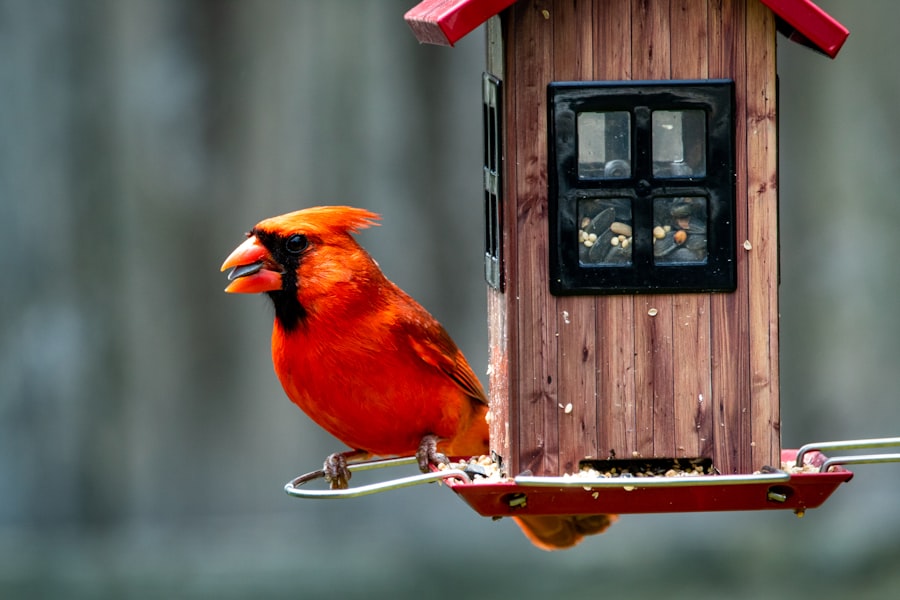Urban chicken keeping has experienced a significant surge in popularity in recent years, with an increasing number of city and suburban residents opting to raise chickens in their backyards. This trend extends beyond rural areas and is driven by various factors, primarily the desire for fresh, organic eggs. As consumers become more conscious of food sources, raising chickens provides a means to ensure egg quality and origin.
The practice of keeping chickens in urban settings also aligns with growing interest in sustainable living. By producing their own eggs, urban chicken keepers can reduce their carbon footprint and decrease reliance on transported food products. Additionally, chickens offer natural pest control benefits, which can be particularly advantageous in urban environments where garden pests are common.
Raising chickens in urban areas can serve as an educational experience for families, teaching children about responsibility and animal care. This trend reflects a broader shift towards self-sufficiency and a desire to reconnect with nature within urban environments. As a result, backyard chicken keeping has become a popular way for city dwellers to engage in small-scale agriculture and sustainable food production.
Table of Contents
- 1 The Benefits of Keeping Chickens for Fresh Eggs and Pest Control
- 2 The Legalities and Regulations of Keeping Chickens in Residential Areas
- 3 The Growing Community of Chicken Keepers and Online Resources
- 4 The Costs and Responsibilities of Keeping Chickens
- 5 The Health and Wellness Benefits of Raising Chickens
- 6 Tips for Beginners and Common Mistakes to Avoid When Keeping Chickens
- 7 FAQs
Key Takeaways
- Keeping chickens in urban areas is a rising trend due to the desire for fresh eggs, pest control, and a connection to food sources.
- Keeping chickens provides the benefits of fresh eggs, natural pest control, and a sustainable food source.
- There are legalities and regulations to consider when keeping chickens in residential areas, including zoning laws and permits.
- The community of chicken keepers is growing, and there are many online resources available for support and information.
- The costs and responsibilities of keeping chickens include initial setup, ongoing care, and ensuring the well-being of the chickens.
- Raising chickens can have health and wellness benefits, such as providing a source of physical activity and stress relief.
- Beginners should be mindful of common mistakes when keeping chickens, such as inadequate coop space and not considering the noise and odor factors.
The Benefits of Keeping Chickens for Fresh Eggs and Pest Control
Raising chickens at home can have numerous benefits, and one of the most significant advantages is the access to fresh, organic eggs.
Fresher and Nutritious Eggs
Unlike store-bought eggs, which may have been sitting on shelves for weeks before reaching consumers, home-raised eggs are typically much fresher and have a richer flavor. Additionally, backyard eggs are often higher in nutrients such as omega-3 fatty acids and vitamin E, as the chickens have access to a more varied diet than commercial hens.
Animal Welfare and Environmental Benefits
For those who are concerned about animal welfare and the environmental impact of egg production, raising chickens at home provides a way to ensure that the eggs they consume come from happy, healthy hens.
Natural Pest Control
Chickens also offer natural pest control for gardens and yards. Chickens are omnivores and will eagerly consume insects, slugs, snails, and even small rodents. This can be particularly beneficial for urban gardeners who may struggle with pests that can damage crops. By allowing chickens to roam freely in the yard or garden, urban dwellers can reduce the need for chemical pesticides and promote a more natural and sustainable approach to pest management.
Overall, the benefits of keeping chickens for fresh eggs and pest control make it an appealing option for those looking to embrace a more self-sufficient and sustainable lifestyle.
The Legalities and Regulations of Keeping Chickens in Residential Areas

While the idea of keeping chickens in urban areas may be appealing, it is important for prospective chicken keepers to be aware of the legalities and regulations surrounding this practice. Many cities and towns have specific ordinances that govern the keeping of chickens, including rules regarding the number of chickens allowed, coop requirements, and noise restrictions. Before embarking on the journey of raising chickens, it is essential to research and understand the local laws and regulations to ensure compliance.
In some areas, keeping chickens may be prohibited altogether, while others may have strict guidelines that must be followed. It is also important to consider the potential impact on neighbors, as noisy or unsightly chicken coops can lead to complaints and legal issues. By familiarizing themselves with local regulations and obtaining any necessary permits or approvals, urban chicken keepers can avoid potential conflicts and ensure a positive experience for themselves and their neighbors.
Overall, understanding the legalities and regulations of keeping chickens in residential areas is crucial for anyone considering this endeavor.
The Growing Community of Chicken Keepers and Online Resources
As the trend of keeping chickens in urban areas continues to grow, so does the community of chicken keepers. There are now numerous online resources, forums, and social media groups dedicated to supporting and connecting urban chicken enthusiasts. These platforms provide a wealth of information on topics such as coop design, chicken breeds, health care, and egg production.
They also offer a space for experienced chicken keepers to share their knowledge and advice with beginners, creating a supportive community for those embarking on their chicken-keeping journey. In addition to online resources, many cities now have local organizations or clubs dedicated to urban chicken keeping. These groups often host workshops, meetups, and events where members can learn from each other and exchange tips and ideas.
By joining these communities, urban chicken keepers can gain valuable insights and support from like-minded individuals who share their passion for raising chickens. Overall, the growing community of chicken keepers and online resources has made it easier than ever for urban dwellers to learn about and engage in this rewarding hobby.
The Costs and Responsibilities of Keeping Chickens
While keeping chickens can be a rewarding experience, it is important for prospective chicken keepers to consider the costs and responsibilities involved. Setting up a suitable coop and run can require a significant initial investment, as can purchasing feeders, waterers, bedding, and other essential supplies. Additionally, ongoing costs such as feed, bedding, veterinary care, and potential repairs or upgrades to the coop should be factored into the budget.
It is also important to consider the time commitment involved in caring for chickens, including daily feeding and watering, cleaning the coop, collecting eggs, and monitoring the health of the flock. In addition to financial costs, keeping chickens also requires a sense of responsibility and dedication. Chickens are living creatures that rely on their owners for food, water, shelter, and protection from predators.
This means that chicken keepers must be prepared to provide daily care and attention to their flock, regardless of weather conditions or other commitments. It is also important to have a plan in place for vacations or other times when regular care may be disrupted. By understanding the costs and responsibilities of keeping chickens, prospective chicken keepers can make informed decisions about whether this hobby is right for them.
The Health and Wellness Benefits of Raising Chickens

Physical and Mental Well-being
Spending time outdoors caring for chickens can provide exercise and stress relief, as well as opportunities for connecting with nature. The act of tending to chickens can be meditative and calming, offering a break from the hustle and bustle of urban life.


Studies have shown that interacting with animals can have therapeutic effects on mental health, reducing anxiety and promoting feelings of well-being.
Educational Opportunities
Raising chickens can also provide educational opportunities for children and families. Caring for chickens teaches responsibility, empathy, and respect for animals, while also providing hands-on lessons in biology, nutrition, and sustainability. Children who are involved in raising chickens often develop a greater appreciation for where their food comes from and gain valuable life skills that will serve them well into adulthood.
Tips for Beginners and Common Mistakes to Avoid When Keeping Chickens
For those who are new to keeping chickens, there are several important tips to keep in mind to ensure a successful experience. First and foremost, it is essential to research different chicken breeds to find ones that are well-suited to urban environments and match your specific needs and preferences. Additionally, investing in a secure coop with adequate space for your flock is crucial for their safety and well-being.
Proper nutrition is also key, so be sure to provide a balanced diet that includes commercial feed as well as access to fresh greens and insects. It is also important to be vigilant about predator protection, as urban areas may have more risks from neighborhood cats or dogs than rural settings. Regular health checks are essential for monitoring the well-being of your flock and catching any potential issues early on.
Finally, it is important to be mindful of noise levels and potential disturbances to neighbors when keeping chickens in residential areas. By following these tips and being proactive about potential challenges, beginners can avoid common mistakes and enjoy a positive experience with their urban flock.
If you’re considering keeping chickens, you may want to read this article on the benefits of having a chicken coop in Chester, SC. The article discusses the advantages of having a secure and comfortable coop for your chickens, such as protection from predators and the elements. Check it out here.
FAQs
What is the popularity of keeping chickens?
According to the 2019-2020 National Pet Owners Survey conducted by the American Pet Products Association, approximately 1% of U.S. households keep chickens as pets.
Why do people keep chickens?
People keep chickens for various reasons, including a sustainable source of fresh eggs, pest control in the garden, as pets, and for educational purposes for children.
Are there any regulations or restrictions on keeping chickens?
Regulations and restrictions on keeping chickens vary by location. Many cities and towns have specific ordinances regarding the number of chickens allowed, coop requirements, and distance from neighboring properties.
What are the benefits of keeping chickens?
Keeping chickens can provide benefits such as a sustainable source of fresh eggs, natural pest control in the garden, and the opportunity to teach responsibility and animal care to children.
What are the challenges of keeping chickens?
Challenges of keeping chickens may include predator protection, maintaining a clean coop, and providing proper nutrition and healthcare for the chickens. Additionally, some neighborhoods or homeowners associations may have restrictions on keeping chickens.
Meet Walter, the feathered-friend fanatic of Florida! Nestled in the sunshine state, Walter struts through life with his feathered companions, clucking his way to happiness. With a coop that’s fancier than a five-star hotel, he’s the Don Juan of the chicken world. When he’s not teaching his hens to do the cha-cha, you’ll find him in a heated debate with his prized rooster, Sir Clucks-a-Lot. Walter’s poultry passion is no yolk; he’s the sunny-side-up guy you never knew you needed in your flock of friends!







